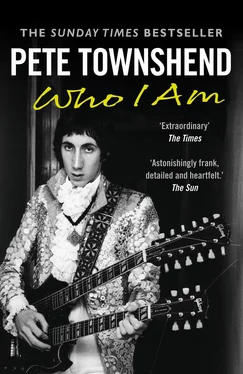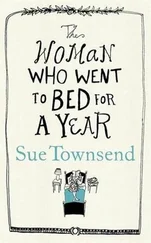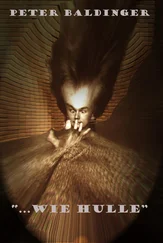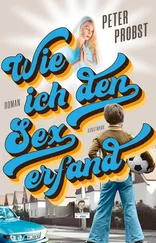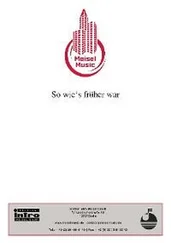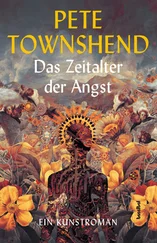Aunt Trilby provided me with drawing paper and complimented my rapid sketches. After a while I would drift to the piano and, after checking to see that she was engrossed in her knitting or a book, begin to play. The instrument was never quite in tune, but I explored the keyboard until I found whatever combination I was after.
One day I found some chords that made me lightheaded. As I played them my body buzzed all over, and my head filled with the most complex, disturbing orchestral music. The music soared higher and higher until I finally stopped playing, and came back to the everyday world.
‘That was beautiful,’ said Tril, looking up from whatever she was doing. ‘You are a real musician.’
Because of Tril’s faith in me, I became a bit of a mystic like her. I prayed to God, and at Sunday school I came to genuinely love and admire Jesus. In heaven, where he lived, the strange music I sometimes heard was completely normal.
Miss Caitling continued to encourage me to link my fantasies with the real world through creative writing and art. She began inviting me to tell serial stories to the class, which I made up as I went along. Looking back, I understand that my classmates were as gripped by the thrill of seeing how I would escape my tangled plots as they were by the stories themselves. Sometimes, if I got in too deep, I simply dropped a nuclear bomb on my characters and started all over.
I felt natural standing in front of an audience. I also discovered that I could think quickly on my feet. If I didn’t know something, I could often bluff my way around it. In my last year at Berrymede I told anyone who asked about my ambitions to be a journalist.
In summer 1957 on the Isle of Man, Jimpy came for another visit. We had a great time together, and Dad took us to the cinema to see a musical film. I asked Dad what he thought of the music. He said he thought it had some swing, and anything that had swing was OK.
For me it was more than just OK. After seeing Rock Around the Clock with Bill Haley, nothing would ever be quite the same.
4 A TEENAGE KIND OF VENGEANCE
I was still playing the harmonica, and getting good at it, but it was clear that the guitar was the instrument that mattered. Jimpy and I had been mesmerised by Rock Around the Clock , and Haley’s band only had a single sax player. They marked their Country & Western heritage with a pedal-steel guitar, and the swing was jaunty and extremely cheerful, bordering on manic. The words were often nonsensical. Today almost every early rock lyric has been interpreted as having some secret meaning to do with sex, but if they did I never noticed.
I only liked Bill Haley for a few months, but Jimpy was totally hooked and bought several Haley and Elvis records. While Jimpy was still with me on the Isle of Man, he and a pretty girl named Elaine – with whom we had both fallen in love – started singing Elvis songs together. They lost me there. To my ear Elvis sounded corny, a drawling dope singing about dogs. I just didn’t get it. Unfortunately I had missed his first masterful releases like ‘That’s Alright Mama’ and ‘Heartbreak Hotel’, and had come in directly on ‘Hound Dog’ and ‘Love Me Tender’, a song that made me want to vomit, especially when Jimpy and Elaine crooned it at one another. In his movies (apart from Jailhouse Rock ) Elvis confirmed my view of him as a chump.
After the holidays I started my second year at Acton County Grammar School. To my parents’ enormous joy, my mother finally got pregnant, and my brother Paul was born. Mum and Dad made plans to move to a bigger flat, and found one on the same street where Dad’s parents still lived on Uxbridge Road. It seemed good karma all round. In the new flat, on Woodgrange Avenue, I sat on a ladder in the empty dining room, playing my harmonica. I knew this was going to be a lucky place. I had my own room with a door, and Paul was the sibling I’d always wanted.
That autumn Dad got tickets for Jimpy and me to see Bill Haley live at the old Regal cinema at Marble Arch. I went along mostly for Jimpy’s sake. We had seats in the highest gallery, the very back row, where we were surrounded by rowdy older teenagers. The cinema had been structurally weakened by bombs, so when the audience bounced enthusiastically to the beat the gallery literally shook. (The building was demolished a few months later.)
Several boys at school had got the rock ’n’ roll bug, but their interest seemed confined to whistling whatever record was number one at the time. Jimpy got his father to make him a guitar. He stood in front of the mirror, wiggling like Elvis, strumming at the tuneless piano wire with which Fred had strung the homemade instrument. One day I grabbed the wooden box and, not quite knowing what I was doing, picked out a tune. Jimpy was gobsmacked. He ran into the other room where both our dads sat drinking, and brought them in to hear me. Dad didn’t say much, but Fred Beard said, ‘If he can play that thing, he could do really well with a proper guitar.’
Dad wasn’t convinced. I badgered him, but because I’d never followed his advice and learned to read music he wouldn’t take my aspiration seriously. (Without a piano in the house I’m not sure how he thought I would be able to learn.)
Ironically, it was Denny who stepped in. She bought me a guitar that she saw hanging from the wall of a restaurant, whose owner was a friend of hers. It was an awful instrument, almost harder to play than the one Fred had made for Jimpy, but I was delighted. After I got it correctly strung, I started learning a few chords. Within minutes three strings had broken and the neck of the guitar started to bend, but I just reduced the tension and made do with the three remaining strings.
One day I was strumming when Dad’s trumpet player friend Bernie Sharpe heard me in my room and looked in. ‘You’re doing well, Pete,’ he said. ‘Isn’t he, Cliff?’ No response from Dad, but alone in my room picking out notes on my guitar I had visions of leaving him and his glorious musical traditions behind. Deep down, I suspected that my father had had his day.
In 1957 Chas McDevitt had a UK hit with a song called ‘Freight Train’. I first heard the song on BBC TV sung by Nancy Whiskey. Listening to the homespun campfire sound of skiffle I realised that with a guitar and a few chords you could make hit records.
Because of the very real and immediate threat that skiffle music posed to Dad’s recording career – and thus to my family’s security (for now I never seemed to see a saxophone or clarinet player on the TV) – I had a unique window on how society was subtly changing. After decades of dealing with military threats, our parents now faced a danger from within. ‘Youth’ was what it came to be called. I had joined an army of my peers by picking up the guitar, that instrument that threatened my father’s career. Perhaps that’s why I delayed by picking up the banjo for a while, playing Dixieland jazz.
The group of school friends with whom I played music was full of potential Jimpy substitutes. Chris Sherwin was a student drummer, and with Phil Rhodes on clarinet and John Entwistle playing trumpet we met each week to rehearse a quartet in which I played banjo. We called the group The Confederates. In spring 1958, when we began, I was still only twelve years old, but they were already teenagers. I knew John Entwistle a little, and enjoyed his sense of humour. Chris Sherwin acted like the band’s leader, partly because our rehearsals were held at his father’s house on Ealing Green.
Our first gig with The Confederates was at the Congo Club at the Congregational Church in Acton on 6 December 1958. We played for about ten people. I was frozen with nerves as we played a tune we’d made up together, based around a banjo ‘C’ chord I picked out. We went on with ‘Maryland’ and ‘When the Saints Go Marching In’, featuring Chris Sherwin’s explosive drum solo. After we finished I watched in complete amazement as John Entwistle and the other boys jived with girls. One girl tried to teach me the steps, but I just couldn’t hit her marks. I still can’t jive today.
Читать дальше
